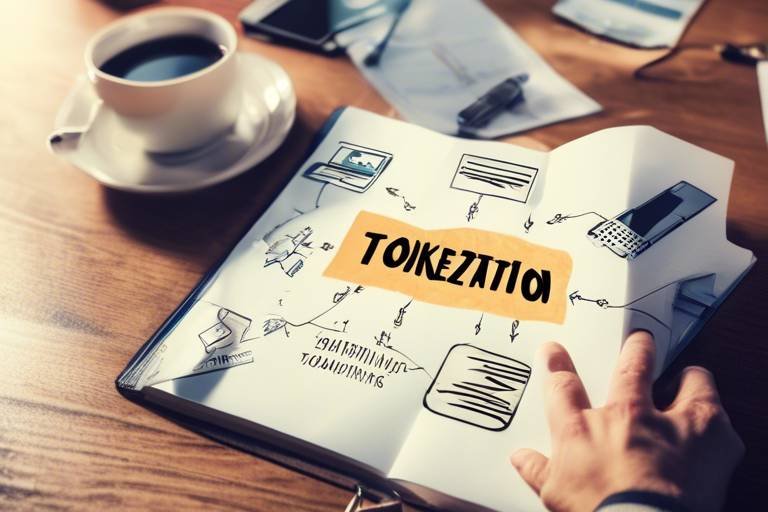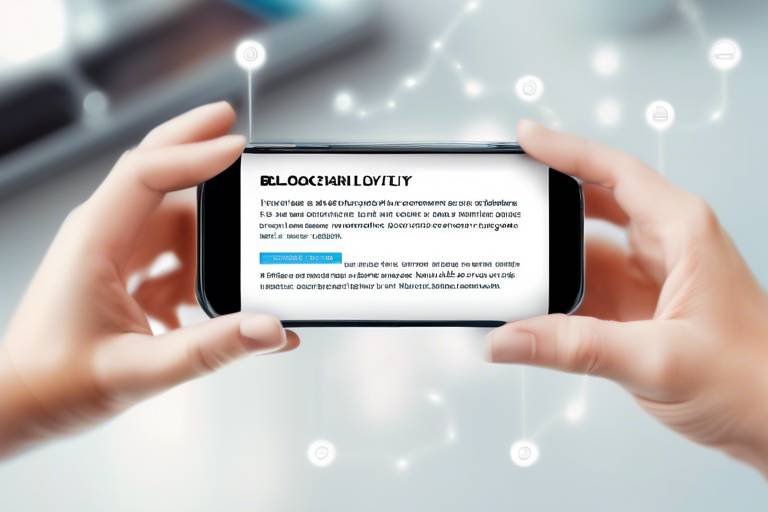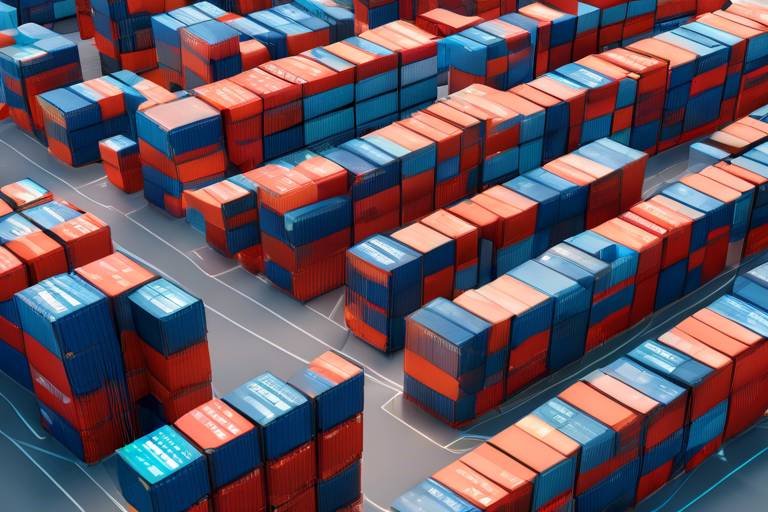Understanding the Importance of Data Sharing in Blockchain
In today's digital age, data sharing has become a cornerstone of effective communication and collaboration across various industries. When we talk about blockchain technology, the importance of data sharing cannot be overstated. Imagine a world where every transaction is transparent, secure, and instantly accessible. This is the promise of blockchain, and data sharing is the key that unlocks this potential. By allowing multiple parties to access and verify information, blockchain fosters a sense of trust and accountability that is often lacking in traditional systems.
So, what exactly does data sharing entail in the context of blockchain? At its core, it refers to the process of distributing data across a decentralized network, where each participant has a copy of the same data. This not only enhances collaboration among users but also ensures that everyone is on the same page. Think of it like a group project where every member has access to the same information, making it easier to work together and achieve common goals. In this article, we'll dive deep into the critical role of data sharing in blockchain, exploring its benefits, challenges, and its profound impact on various industries.
Furthermore, as we navigate through this topic, we'll highlight how effective data sharing can lead to improved transparency and security. In a world where data breaches and misinformation are rampant, the ability to share data securely and transparently is not just an advantage—it's a necessity. By the end of this article, you’ll have a comprehensive understanding of why data sharing is essential in the blockchain ecosystem and how it can transform industries from finance to healthcare and beyond.
Data sharing is fundamental to blockchain's success, enabling decentralized networks to function effectively. In a traditional database, a single entity controls the data, but in a blockchain, the data is distributed across a network of nodes. This decentralization means that no single party has complete control over the data, fostering collaboration and trust among participants. When data is shared openly, it creates a level playing field where all users can verify transactions and trust the information presented.
Consider this: in a blockchain ecosystem, every transaction is recorded on a public ledger that can be accessed by all participants. This transparency builds a strong foundation of trust, as everyone can see the history of transactions. It’s akin to having a transparent box where everyone can see the contents; no one can tamper with it without being noticed. This collaborative environment not only enhances the overall integrity of the system but also encourages innovation as participants can build upon shared data.
Data sharing in blockchain offers numerous advantages, including improved transparency, enhanced security, and increased efficiency. These benefits contribute significantly to the overall utility of blockchain technology. Let's take a closer look at some of these benefits.
One of the most significant benefits of data sharing is enhanced transparency. When data is shared among participants, it leads to greater accountability and trust. For instance, in supply chain management, stakeholders can track products from origin to destination, ensuring that every step of the process is visible. This transparency not only builds trust among consumers but also holds companies accountable for their practices.
Real-time data access is crucial for decision-making in blockchain environments. With data sharing, participants can access information instantly, improving responsiveness and agility. Imagine being able to make informed decisions within seconds rather than waiting for reports or updates. This capability can significantly enhance operational efficiency and drive better outcomes.
Data sharing enhances auditability and compliance in blockchain systems. By providing a clear and immutable record of transactions, shared data simplifies regulatory compliance and streamlines audit processes across industries. Companies can easily demonstrate adherence to regulations, reducing the risk of penalties and enhancing their reputation.
Data sharing can significantly bolster security in blockchain networks. With shared data mechanisms, risks can be mitigated, and unauthorized access can be prevented. By distributing data across multiple nodes, blockchain reduces the likelihood of a single point of failure, making it much harder for malicious actors to compromise the system.
Despite its benefits, data sharing in blockchain presents several challenges, including privacy concerns and data integrity issues. Understanding these challenges is essential for leveraging data sharing effectively.
Privacy is a major concern when sharing data on blockchain. Striking a balance between transparency and confidentiality is critical. Techniques such as encryption and zero-knowledge proofs can help protect sensitive information while still allowing for shared access. By implementing these technologies, stakeholders can ensure that their data remains secure while benefiting from the transparency that blockchain offers.
Ensuring data integrity is vital for trust in blockchain systems. As data is shared among multiple parties, maintaining accurate and reliable information becomes challenging. Mechanisms such as consensus algorithms and cryptographic hashes play a crucial role in safeguarding data integrity. By employing these methods, blockchain networks can ensure that the data remains unaltered and trustworthy.
- What is data sharing in blockchain? Data sharing in blockchain refers to the distribution of data across a decentralized network, allowing all participants to access and verify the same information.
- How does data sharing enhance transparency? By allowing all participants to view the same data, blockchain creates a transparent environment where accountability is increased.
- What are the privacy concerns associated with data sharing? Privacy concerns arise from the need to protect sensitive information while still allowing for transparency and shared access among participants.
- How can data integrity be maintained in shared environments? Techniques such as consensus algorithms and cryptographic hashes are used to ensure that shared data remains accurate and reliable.
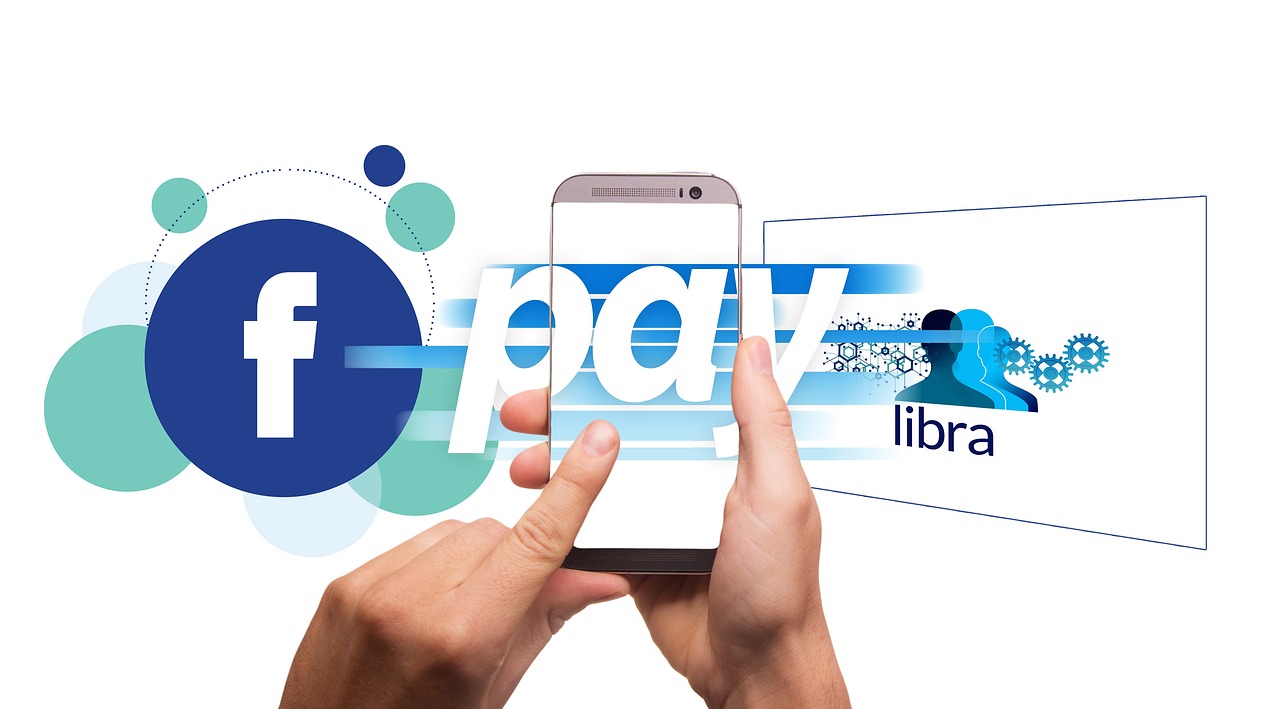
The Role of Data Sharing in Blockchain
Data sharing is fundamentally intertwined with the success of blockchain technology. Imagine a world where every transaction is not only recorded but also easily accessible to all participants in a network. This is the essence of blockchain, where data sharing fosters a collaborative environment, enabling decentralized networks to operate seamlessly. When participants can access shared data, it cultivates a sense of trust and accountability that is often missing in traditional systems. In a way, it's like having a community garden where everyone contributes to and benefits from the harvest—transparency and cooperation lead to a flourishing ecosystem.
At the core of blockchain's architecture lies the principle of decentralization. Unlike traditional databases controlled by a single authority, blockchain distributes data across a network of nodes. This decentralization not only enhances security but also encourages participants to share information freely. When data is shared among all network members, it creates a collective intelligence that is far more robust than isolated data silos. For example, in supply chain management, sharing data about product origin, transit conditions, and delivery timelines can significantly improve efficiency and reduce fraud.
Moreover, data sharing in blockchain allows for real-time updates that can drastically improve decision-making processes. Imagine a scenario where a retailer can instantly access inventory data from multiple suppliers. This instant access enables them to make informed purchasing decisions, respond to demand fluctuations, and optimize stock levels without delay. In this sense, data sharing acts like a lifeline, ensuring that all parties are on the same page and can act swiftly to changing circumstances.
However, the role of data sharing extends beyond mere access to information. It also enhances auditability and compliance. In industries like finance and healthcare, regulations require rigorous tracking of transactions and data handling practices. With shared data on a blockchain, organizations can easily demonstrate compliance with regulatory standards. This not only simplifies the audit process but also builds confidence among stakeholders, knowing that the data is accurate and verifiable. It's akin to having a transparent ledger that everyone can see but only authorized participants can alter.
In summary, data sharing is not just a feature of blockchain technology; it is its lifeblood. It fosters collaboration, enhances transparency, and strengthens trust among participants. As industries continue to explore the potential of blockchain, the role of data sharing will undoubtedly be a pivotal factor in unlocking its full capabilities.
- What is data sharing in blockchain? - Data sharing in blockchain refers to the practice of making transaction and operational data accessible to all participants in a decentralized network.
- How does data sharing enhance transparency? - By allowing all network members to access the same data, blockchain increases accountability and trust, as everyone can verify transactions independently.
- What are the benefits of real-time data access? - Real-time data access allows for quicker decision-making, enabling businesses to respond rapidly to changes and optimize their operations.
- Are there privacy concerns with data sharing? - Yes, while data sharing promotes transparency, it also raises questions about how to protect sensitive information. Techniques like encryption and permissioned access can help mitigate these concerns.

Benefits of Data Sharing
Data sharing in blockchain is not just a technical necessity; it’s a transformative force that can redefine how industries operate. Think of it as opening a window to a world where information flows freely, fostering collaboration and innovation. The advantages of data sharing are numerous and impactful, ranging from improved transparency to enhanced security and increased efficiency. Each of these benefits plays a pivotal role in maximizing the potential of blockchain technology.
One of the standout advantages of data sharing is its ability to enhance transparency. In a blockchain environment, every participant has access to the same data, which inherently builds trust. Imagine a marketplace where every transaction is visible to all parties involved. This level of openness not only promotes accountability but also ensures that everyone is on the same page, reducing misunderstandings and disputes. When stakeholders can see the same information, it cultivates a culture of trust and cooperation, essential for any successful business ecosystem.
To elaborate further, enhanced transparency through data sharing can lead to significant improvements in accountability among participants. In industries like finance, healthcare, and supply chain management, having a clear view of data can prevent fraud and malpractice. For example, in supply chains, shared data can track the origin of goods, ensuring that companies adhere to ethical sourcing practices. This transparency creates a ripple effect, encouraging best practices and ethical behavior across the board.
Another compelling aspect of data sharing is the provision of real-time data access. In today’s fast-paced world, the ability to make informed decisions quickly can be the difference between success and failure. With blockchain, data sharing allows for instantaneous access to critical information. This means that businesses can respond to market changes, customer needs, and operational challenges with agility. Consider a scenario where a retailer can instantly see inventory levels across all locations; they can optimize stock levels, reduce waste, and enhance customer satisfaction by ensuring product availability.
Moreover, data sharing significantly enhances auditability and compliance. In sectors that are heavily regulated, such as finance and healthcare, maintaining compliance can be a daunting task. However, with blockchain, shared data provides a clear audit trail that simplifies regulatory processes. Companies can easily demonstrate compliance with laws and regulations, reducing the risk of penalties and enhancing their reputation. The ability to trace every transaction back to its origin not only helps in audits but also builds confidence among stakeholders.
On the security front, data sharing can significantly bolster the defenses of blockchain networks. By distributing data across a decentralized network, the risk of unauthorized access decreases dramatically. Each participant holds a copy of the data, making it incredibly difficult for malicious actors to manipulate or steal information. Furthermore, advanced cryptographic techniques ensure that shared data remains secure, even while being accessible to multiple parties. This duality of accessibility and security is what makes blockchain a game-changer in data management.
In summary, the benefits of data sharing in blockchain are profound and multifaceted. From enhancing transparency and accountability to improving real-time access and compliance, the advantages are clear. As industries continue to embrace blockchain technology, understanding and leveraging these benefits will be crucial for success. The journey of data sharing is just beginning, and its potential is limited only by our imagination.
- What is data sharing in blockchain? Data sharing in blockchain refers to the practice of distributing data across a decentralized network, allowing multiple parties to access and verify the same information securely.
- How does data sharing enhance transparency? By allowing all participants to view the same data, it promotes accountability and trust, reducing the likelihood of fraud and disputes.
- What are the security benefits of data sharing? Data sharing in blockchain enhances security by distributing data across multiple nodes, making it difficult for unauthorized users to access or manipulate the information.
- Can data sharing help with regulatory compliance? Yes, shared data creates a clear audit trail, simplifying compliance with regulations and enhancing trust among stakeholders.
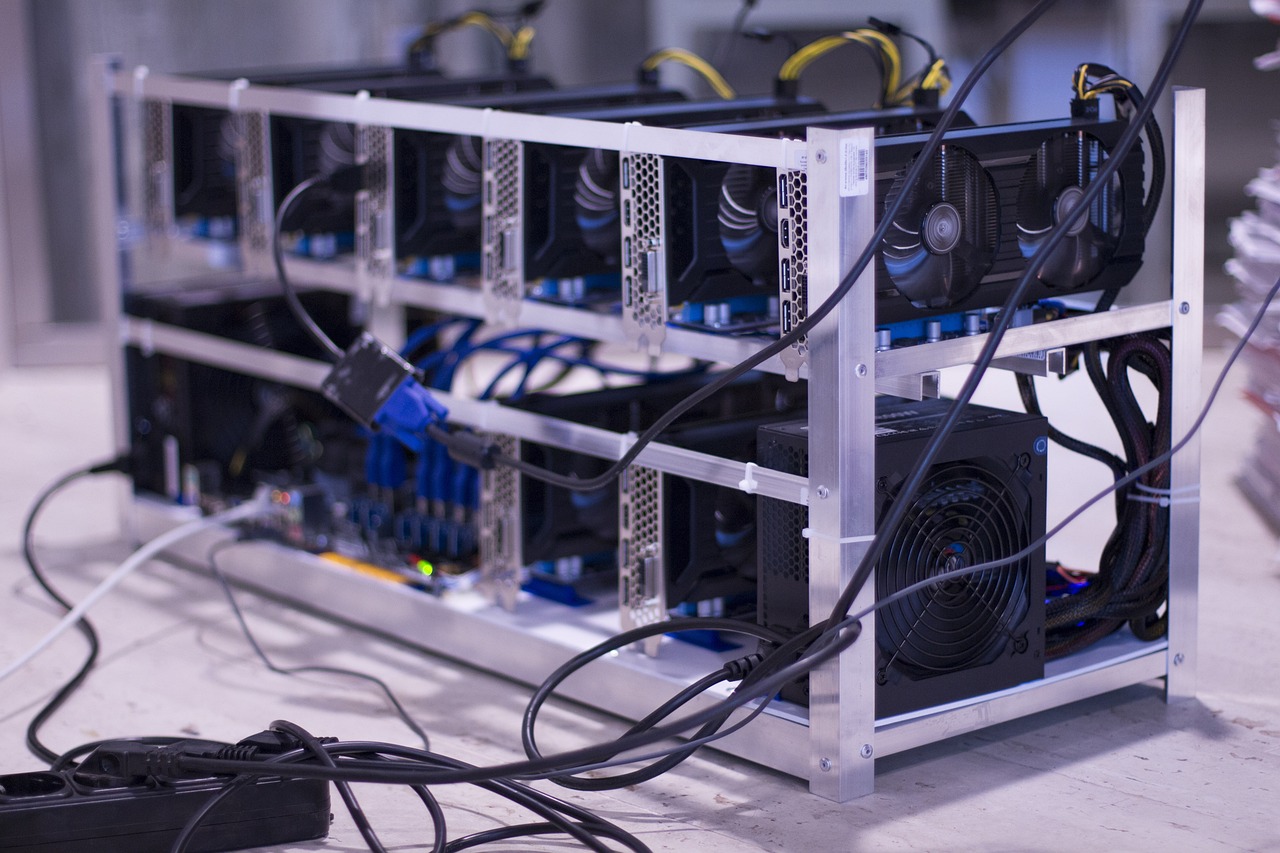
Enhanced Transparency
One of the most significant benefits of data sharing in blockchain technology is the remarkable it brings to various industries. Imagine a world where every transaction is recorded in an immutable ledger, visible to all authorized participants. This level of transparency fosters a sense of trust among stakeholders, ensuring that everyone is on the same page. In a traditional system, trust is often built on reputation or third-party verification, but blockchain flips this notion on its head by making trust a function of the system itself.
When data is shared across a blockchain network, it becomes accessible to all participants in real time. This means that any discrepancies or fraudulent activities can be detected almost instantaneously. For instance, in the supply chain industry, sharing data about product origins, handling, and transportation can help companies ensure that they are sourcing materials ethically and sustainably. With every stakeholder able to verify the data independently, the potential for fraud diminishes significantly.
Moreover, enhanced transparency is not just about visibility; it's about accountability. When everyone can see the same data, it creates a culture of responsibility. Participants are less likely to engage in unethical behavior because the risk of being caught is so high. This is particularly vital in sectors like finance, healthcare, and government, where trust and integrity are paramount. For example, in healthcare, patients can track their medical records, ensuring that their data is accurate and securely shared among authorized professionals, thereby enhancing their confidence in the system.
To illustrate the impact of enhanced transparency, consider the following table that outlines its benefits across different industries:
| Industry | Benefit of Enhanced Transparency |
|---|---|
| Supply Chain | Improved traceability of products, reducing fraud and ensuring ethical sourcing. |
| Finance | Real-time tracking of transactions, minimizing risks of fraud. |
| Healthcare | Patients can verify their medical records, leading to better trust in healthcare providers. |
| Government | Increased citizen trust through transparent public spending and decision-making processes. |
In conclusion, the enhanced transparency provided by data sharing in blockchain is a game-changer. It not only promotes accountability and trust but also serves as a powerful tool against fraud and unethical practices. As more industries adopt blockchain technology, the ripple effects of this transparency will likely transform how we view data integrity and collaboration.
Q1: How does blockchain ensure transparency?
A1: Blockchain ensures transparency by recording all transactions in a public ledger that is accessible to all authorized participants. This immutable record allows for real-time verification and accountability.
Q2: Can enhanced transparency lead to privacy issues?
A2: Yes, while enhanced transparency is beneficial, it can also raise privacy concerns. It’s essential to balance transparency with confidentiality, often through techniques like encryption and permissioned access.
Q3: What industries benefit the most from enhanced transparency?
A3: Industries such as supply chain management, finance, healthcare, and government can significantly benefit from enhanced transparency, as it helps build trust and reduces the risk of fraud.

Real-Time Data Access
In the fast-paced world we live in, has become a necessity rather than a luxury. Imagine trying to navigate through a bustling city without a map or GPS – it would be chaotic, right? Similarly, in the realm of blockchain technology, having immediate access to data is crucial for making informed decisions. Blockchain facilitates this by allowing participants to view and interact with shared data instantly, which leads to quicker responses and more agile operations.
When we talk about real-time data access, we’re essentially discussing the ability to retrieve and utilize information as it is generated. This is particularly important in industries like finance, healthcare, and supply chain management, where timing can be the difference between success and failure. For instance, consider a financial institution that needs to verify a transaction. With real-time data access, they can instantly check the status and authenticity of that transaction on the blockchain, reducing the risk of fraud and increasing trust among users.
Moreover, the benefits of real-time data access extend beyond just speed. It fosters a culture of collaboration and transparency, as all parties involved have the same information at their fingertips. This shared visibility can lead to better coordination among teams and stakeholders, ultimately enhancing overall productivity. In a blockchain network, every participant can see the same data, which minimizes discrepancies and misunderstandings.
However, this access doesn’t come without its challenges. Maintaining the integrity and security of data while ensuring it is accessible in real-time is a delicate balancing act. Organizations must implement robust security measures to protect sensitive information from unauthorized access while still allowing legitimate users to retrieve the data they need. Techniques such as encryption and access controls are essential in achieving this goal.
In summary, real-time data access in blockchain not only streamlines processes but also builds a foundation of trust and accountability. As industries continue to evolve and embrace blockchain technology, the importance of having immediate access to accurate data will only grow. Organizations that prioritize real-time data sharing will undoubtedly find themselves at a competitive advantage, ready to respond to challenges and opportunities as they arise.
- What is real-time data access in blockchain? Real-time data access in blockchain refers to the ability of users to retrieve and utilize data as it is generated, allowing for immediate decision-making and enhanced responsiveness.
- Why is real-time data access important? It is crucial because it enables quicker responses, fosters collaboration, and enhances transparency among participants in a blockchain network.
- What challenges are associated with real-time data access? The main challenges include maintaining data integrity and security while ensuring that sensitive information is protected from unauthorized access.
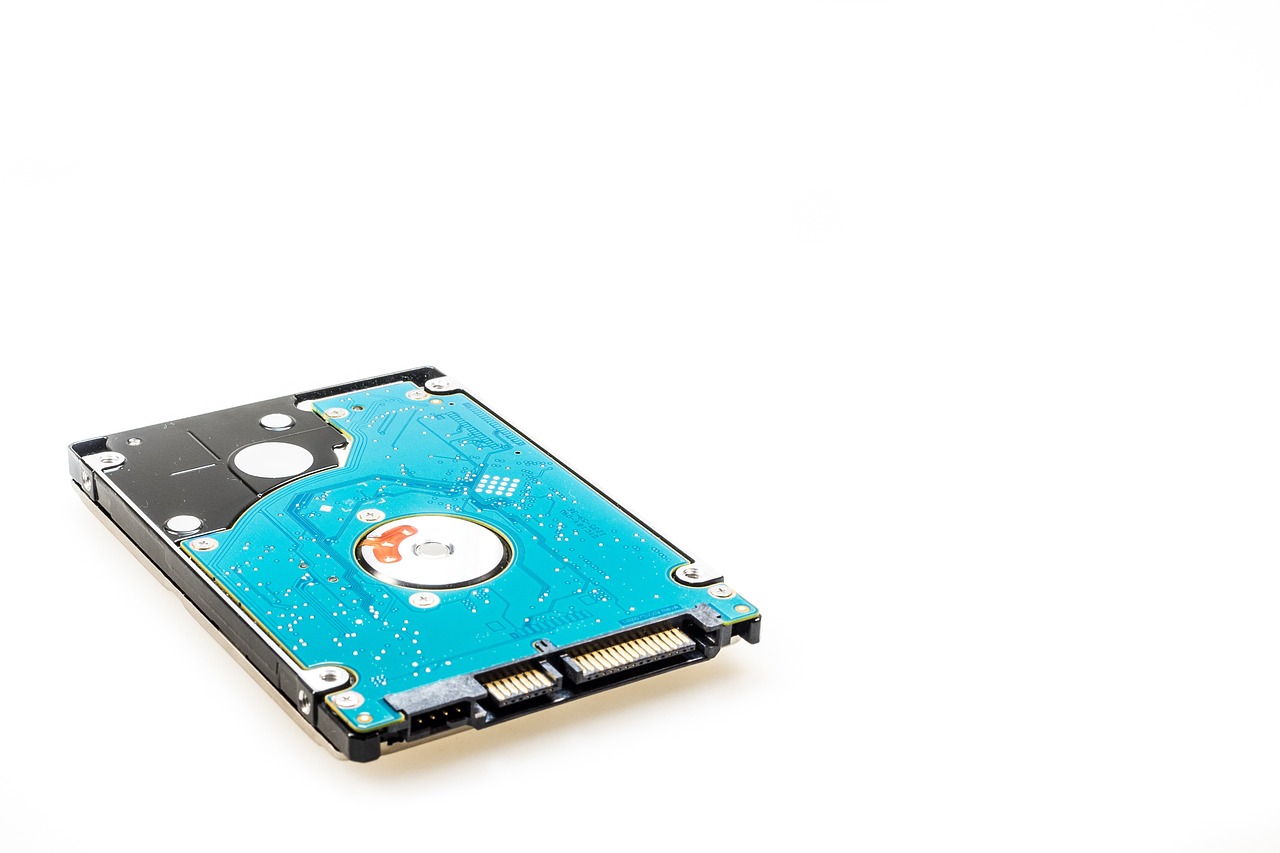
Auditability and Compliance
In the rapidly evolving landscape of blockchain technology, have emerged as critical components that ensure the reliability and integrity of shared data. When multiple parties are involved in a blockchain network, the importance of having a transparent and trustworthy system cannot be overstated. Imagine a world where every transaction is recorded in a tamper-proof ledger, accessible to all authorized participants. This is the promise of blockchain, and effective data sharing plays a pivotal role in realizing this vision.
One of the key advantages of blockchain is its ability to create an immutable record of transactions. This means that once data is entered into the blockchain, it cannot be altered or deleted without consensus from the network. Such a feature significantly enhances auditability, as auditors can trace back through the entire history of transactions to verify compliance with regulatory standards. In traditional systems, auditors often face challenges in obtaining accurate records, leading to inefficiencies and potential errors. However, with blockchain, the process becomes seamless, as all data is readily available for examination.
Furthermore, the decentralized nature of blockchain networks fosters a sense of trust among participants. Each transaction is verified by multiple nodes, ensuring that no single entity has control over the data. This collaborative verification process not only boosts confidence in the system but also simplifies compliance with various regulations. Companies can demonstrate adherence to legal requirements by providing access to their blockchain records, thus minimizing the risk of penalties or legal repercussions.
To illustrate the impact of auditability and compliance in blockchain, consider the following table that summarizes how data sharing enhances these aspects:
| Aspect | Traditional Systems | Blockchain Systems |
|---|---|---|
| Data Availability | Often fragmented and siloed | Accessible and transparent |
| Transaction Verification | Relies on a central authority | Consensus-based verification |
| Audit Process | Time-consuming and prone to errors | Real-time and efficient |
| Compliance Reporting | Manual and labor-intensive | Automated and streamlined |
Moreover, the integration of smart contracts into blockchain technology further enhances compliance efforts. Smart contracts are self-executing contracts with the terms of the agreement directly written into code. They automatically enforce compliance by executing actions when specific conditions are met. This automation reduces the potential for human error and ensures that all parties adhere to the agreed-upon terms without the need for intermediaries.
However, while blockchain offers remarkable benefits for auditability and compliance, it is not without its challenges. Organizations must navigate the complexities of regulatory frameworks that vary across jurisdictions. Additionally, the need for interoperability between different blockchain systems can pose hurdles in ensuring seamless compliance. As the technology continues to mature, it will be essential for stakeholders to collaborate and establish standards that facilitate effective data sharing while maintaining compliance.
In conclusion, the role of data sharing in enhancing auditability and compliance within blockchain systems is undeniable. By providing transparent, immutable records and fostering trust among participants, blockchain technology paves the way for more efficient and reliable compliance processes. The future of auditability in blockchain looks promising, provided that organizations remain vigilant in addressing the challenges that lie ahead.
- What is auditability in blockchain? Auditability refers to the ability to trace and verify transactions within a blockchain, ensuring that all data is accurate and compliant with regulations.
- How does blockchain enhance compliance? Blockchain enhances compliance by providing transparent, immutable records that can be easily accessed and verified by auditors and regulatory bodies.
- What are smart contracts? Smart contracts are self-executing contracts with the terms written in code, which automatically enforce compliance when conditions are met.
- What challenges does blockchain face regarding compliance? Challenges include varying regulatory frameworks, the need for interoperability, and ensuring data privacy while maintaining transparency.

Increased Security
When we talk about blockchain technology, the word security often comes up, and for good reason. One of the standout features of blockchain is its inherent ability to enhance security through effective data sharing. Imagine a digital fortress where every brick is a piece of data, and every wall is built on trust and transparency. In such an environment, shared data mechanisms play a pivotal role in safeguarding sensitive information against unauthorized access and potential breaches.
With traditional data storage methods, vulnerabilities often arise from centralization. Hackers can target a single point of failure, leading to catastrophic data breaches. However, in a blockchain network, data is distributed across multiple nodes, making it exceedingly difficult for malicious actors to compromise the entire system. This decentralized approach not only strengthens security but also fosters a sense of collaboration among participants, as they collectively protect the integrity of the data.
Moreover, the use of cryptographic techniques in blockchain adds an additional layer of security. Each transaction is encrypted and linked to the previous one, creating an immutable chain of records. This means that once data is added to the blockchain, it cannot be altered or deleted without the consensus of the network. This immutability is crucial for maintaining trust among stakeholders, as it ensures that all parties have access to the same, unaltered information.
To illustrate the security benefits of data sharing in blockchain, consider the following:
| Feature | Traditional Systems | Blockchain Systems |
|---|---|---|
| Data Storage | Centralized | Decentralized |
| Data Integrity | Vulnerable to tampering | Immutable and transparent |
| Access Control | Single point of failure | Distributed control among participants |
In addition to these features, data sharing in blockchain enables real-time monitoring of transactions, which can further enhance security. Imagine being able to track every movement of assets in real-time, with alerts triggered for any suspicious activity. This capability not only helps in preventing fraud but also allows organizations to respond swiftly to potential threats.
However, it's essential to recognize that while data sharing in blockchain significantly increases security, it does not eliminate risks entirely. Organizations must still implement robust security protocols and educate their teams about potential vulnerabilities. By combining the strengths of blockchain with a proactive approach to security, businesses can create a formidable defense against cyber threats.
As we continue to explore the landscape of blockchain technology, it's clear that increased security through effective data sharing is not just a benefit—it's a necessity. The future of secure transactions and data integrity lies in our ability to harness the power of shared information while maintaining a vigilant stance against emerging threats.
- What is the primary benefit of data sharing in blockchain?
Data sharing enhances transparency, security, and efficiency across blockchain networks. - How does blockchain ensure data security?
Blockchain uses decentralization and cryptographic techniques to protect data integrity and prevent unauthorized access. - Can data shared on blockchain be altered?
No, once data is added to the blockchain, it becomes immutable and cannot be changed without consensus from the network. - What are some challenges associated with data sharing in blockchain?
Challenges include privacy concerns and maintaining data integrity among multiple participants.

Challenges of Data Sharing
While data sharing in blockchain technology offers a plethora of advantages, it also presents a series of challenges that cannot be overlooked. One of the most pressing issues is the privacy concerns associated with sharing sensitive data among multiple parties. Imagine a world where your personal information is accessible to anyone with a blockchain node; it’s a daunting thought, right? Balancing the need for transparency with the necessity of confidentiality is a tightrope walk for many organizations. The challenge lies in implementing effective mechanisms that allow for data sharing while safeguarding individual privacy. Techniques such as data encryption and anonymization can help, but they require careful planning and execution.
Another significant challenge is related to data integrity. In a decentralized system where multiple parties contribute and access data, maintaining the accuracy and reliability of that data is crucial. Imagine a scenario where a piece of shared information is altered by one participant; if others are unaware of this change, it can lead to significant misunderstandings and decisions based on incorrect data. Therefore, ensuring that all parties have access to the most current and accurate data is essential. To tackle this, blockchain systems often incorporate consensus mechanisms that verify data before it is added to the chain. However, these mechanisms can introduce delays, which may hinder the real-time capabilities that many users expect.
Moreover, the issue of scalability comes into play. As more participants join a blockchain network and begin sharing data, the volume of transactions can increase exponentially. This surge can lead to network congestion, resulting in slower transaction times and increased costs. For instance, in a supply chain scenario, if numerous suppliers are sharing data simultaneously, the network may struggle to process all the transactions efficiently. Solutions like sharding or layer 2 protocols are being explored, but they often come with their own set of complexities and trade-offs.
Furthermore, the interoperability of different blockchain systems presents a challenge for data sharing. Different blockchains operate on various protocols and standards, making it difficult for them to communicate and share data seamlessly. For organizations that operate across multiple blockchain platforms, this can create significant hurdles. The development of universal standards and protocols is essential to enable smooth data sharing across different systems.
In summary, while the potential for data sharing in blockchain technology is immense, it is accompanied by challenges that require careful consideration and innovative solutions. Addressing privacy concerns, ensuring data integrity, tackling scalability issues, and enhancing interoperability are all vital for the successful implementation of data sharing in blockchain ecosystems.
- What are the main challenges of data sharing in blockchain? The primary challenges include privacy concerns, data integrity issues, scalability, and interoperability between different blockchain systems.
- How can organizations address privacy concerns? Organizations can employ data encryption and anonymization techniques to protect sensitive information while allowing for necessary data sharing.
- Why is data integrity important in blockchain? Data integrity ensures that all participants in the blockchain network have access to accurate and reliable information, which is crucial for trust and decision-making.
- What solutions exist for scalability issues in blockchain? Solutions such as sharding and layer 2 protocols are being explored to enhance scalability and improve transaction speeds.
- How can interoperability be improved among different blockchains? Developing universal standards and protocols is essential for enabling seamless communication and data sharing across various blockchain platforms.

Privacy Concerns
When it comes to data sharing in blockchain, one of the most pressing issues is privacy. The very nature of blockchain technology promotes transparency, which can sometimes clash with the need for confidentiality. Imagine you're at a party where everyone can see your conversations and interactions; while it fosters openness, it might make you think twice before sharing personal stories. In the blockchain world, this analogy holds true. The challenge lies in balancing the benefits of transparency with the necessity of protecting sensitive information.
On one hand, blockchain's transparent ledger allows all participants to verify transactions and track assets. On the other hand, this openness can expose personal data to potential threats. For instance, consider a healthcare blockchain where patient records are stored. While sharing data among healthcare providers can lead to better patient outcomes, it also raises significant privacy concerns. How do we ensure that sensitive health information remains confidential while still allowing necessary access for treatment?
To tackle these privacy issues, several techniques and technologies have emerged, including:
- Data Encryption: By encrypting data before it is shared on the blockchain, we can protect sensitive information from unauthorized access. Only those with the correct decryption keys can access the real data.
- Zero-Knowledge Proofs: This innovative method allows one party to prove to another that a statement is true without revealing any additional information. It's like proving you have a driver's license without showing your age.
- Permissioned Blockchains: Unlike public blockchains, permissioned blockchains restrict access to authorized users, ensuring that only those who need to see the data can access it.
While these techniques provide a layer of security, they also introduce complexity. Organizations must carefully consider the trade-offs between transparency and privacy. It's a delicate dance that requires constant vigilance and adaptation to emerging threats. As blockchain technology evolves, so too must our strategies for protecting sensitive information.
In conclusion, addressing privacy concerns in data sharing on blockchain is not just a technical challenge; it's a fundamental aspect of building trust among participants. By implementing robust privacy measures, we can harness the power of blockchain while safeguarding the personal data that individuals entrust to us.
- What is the primary privacy concern with blockchain data sharing? The main concern is that while blockchain promotes transparency, it can expose sensitive information to unauthorized parties.
- How can data encryption help with privacy in blockchain? Data encryption protects sensitive information by ensuring that only authorized users with the correct decryption keys can access the data.
- What are zero-knowledge proofs? Zero-knowledge proofs allow one party to prove the truth of a statement without revealing any additional information, enhancing privacy.
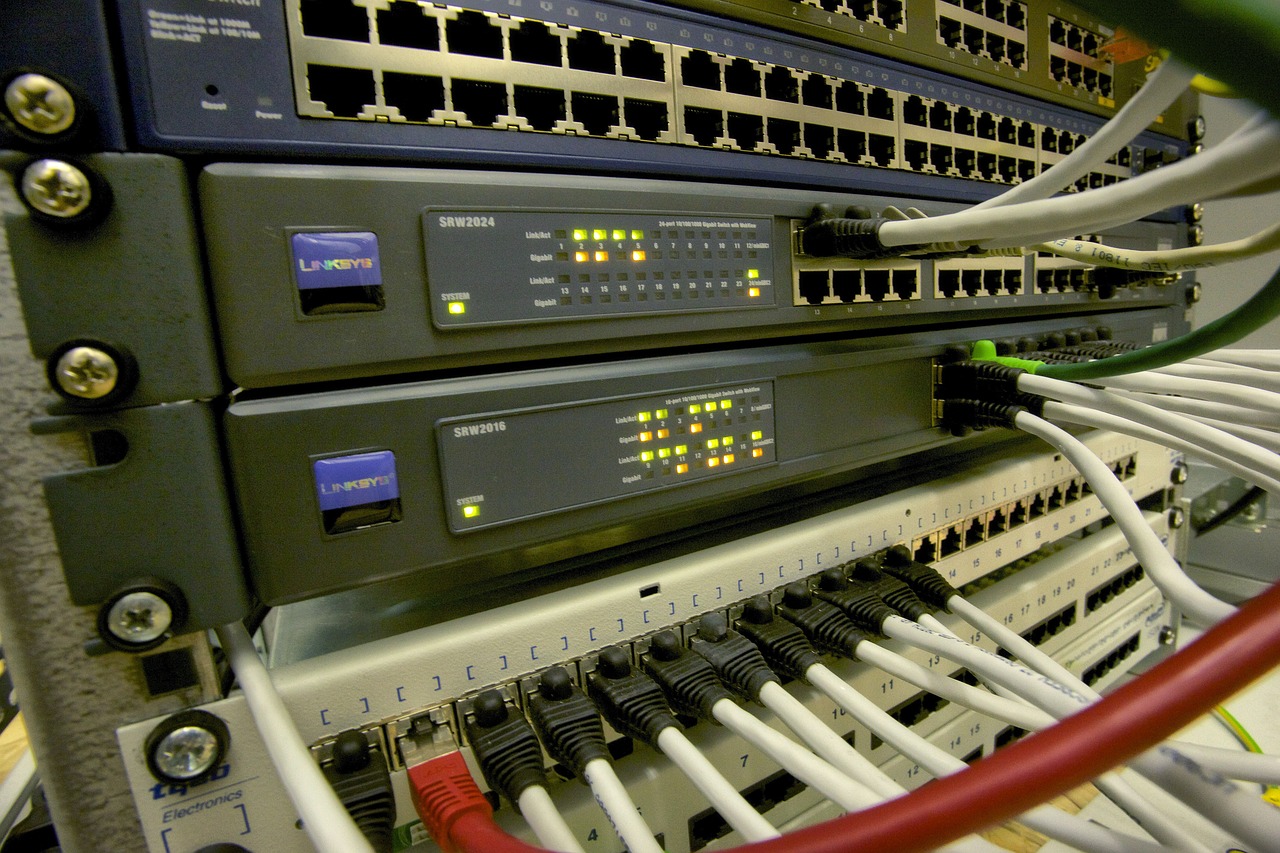
Data Integrity Issues
When it comes to blockchain technology, data integrity is a cornerstone of trust. Imagine you’re at a bustling farmer’s market, and each vendor is required to keep a record of their produce, prices, and sales. If one vendor misrepresents the weight of their tomatoes, it could lead to a ripple effect of distrust among customers and other vendors. Similarly, in the realm of blockchain, ensuring that the data shared among multiple parties remains accurate and reliable is crucial for maintaining the credibility of the entire system.
One of the primary challenges of data integrity in blockchain is the potential for discrepancies that can arise when multiple parties are involved. Each participant in a blockchain network might have their own version of the data, leading to inconsistencies. For instance, if one party updates a transaction but fails to communicate that change effectively, others may operate on outdated or incorrect information. This can lead to confusion, disputes, and ultimately, a breakdown of trust within the network.
Moreover, the decentralized nature of blockchain, while beneficial in many ways, can also complicate data integrity. Without a central authority to verify data, it falls upon the network participants to ensure that the information they are sharing is accurate. This decentralized verification can sometimes lead to if not managed properly. For example, if a malicious actor gains access to a node within the network, they could potentially alter the data, thus compromising the entire system.
To address these integrity challenges, several strategies can be implemented:
- Consensus Mechanisms: Utilizing robust consensus algorithms like Proof of Work or Proof of Stake can help ensure that only validated data is added to the blockchain.
- Regular Audits: Conducting routine audits of the data can help identify discrepancies and maintain accuracy across the network.
- Smart Contracts: These self-executing contracts can automate and enforce rules about data integrity, ensuring that only accurate and agreed-upon data is processed.
In conclusion, while blockchain technology offers revolutionary potential for data sharing and collaboration, the challenge of maintaining data integrity cannot be overlooked. As we continue to explore and develop blockchain applications, addressing these issues will be essential for building a trustworthy and resilient ecosystem. Just like the farmer’s market thrives on honest transactions and accurate representations of goods, the success of blockchain hinges on the integrity of its data.
- What is data integrity in blockchain? Data integrity in blockchain refers to the accuracy and reliability of data shared among participants in a blockchain network.
- Why is data integrity important? It is crucial for maintaining trust and accountability within the blockchain ecosystem, ensuring that all parties can rely on the information being shared.
- What are common challenges to data integrity? Common challenges include discrepancies in data shared among parties, the risk of malicious alterations, and the complexities of decentralized verification.
- How can data integrity be ensured? Strategies such as consensus mechanisms, regular audits, and the use of smart contracts can help maintain data integrity in blockchain systems.
Frequently Asked Questions
- What is data sharing in blockchain?
Data sharing in blockchain refers to the process of distributing information across a decentralized network. This ensures that all participants have access to the same data, promoting transparency and trust within the system. Think of it like a shared Google Doc where everyone can see changes in real-time, fostering collaboration.
- How does data sharing enhance transparency?
Data sharing enhances transparency by allowing all stakeholders to access the same information simultaneously. This shared visibility helps to hold parties accountable, as everyone can see transactions and changes. Imagine a glass box where all actions are visible; it creates an environment of trust and openness.
- What are the benefits of data sharing in blockchain?
Some key benefits of data sharing in blockchain include improved transparency, enhanced security, and increased efficiency. By sharing data, organizations can streamline processes, reduce errors, and make faster decisions. It's like having a well-oiled machine where every part works together seamlessly.
- Are there any challenges associated with data sharing?
Yes, there are challenges, such as privacy concerns and data integrity issues. Balancing the need for transparency with the protection of sensitive information can be tricky. It's like walking a tightrope; you need to ensure that while sharing data, you're not exposing confidential details.
- How can privacy concerns be addressed in blockchain data sharing?
Privacy concerns can be addressed by implementing techniques like encryption and permissioned access. These methods allow sensitive data to be shared securely without compromising confidentiality. Think of it as having a locked safe where only authorized individuals can access the contents.
- What is the importance of data integrity in blockchain?
Data integrity is crucial for maintaining trust in blockchain systems. If the data shared among parties is inaccurate or compromised, it can lead to significant issues. It's like having a recipe; if one ingredient is wrong, the final dish may not turn out as expected.



